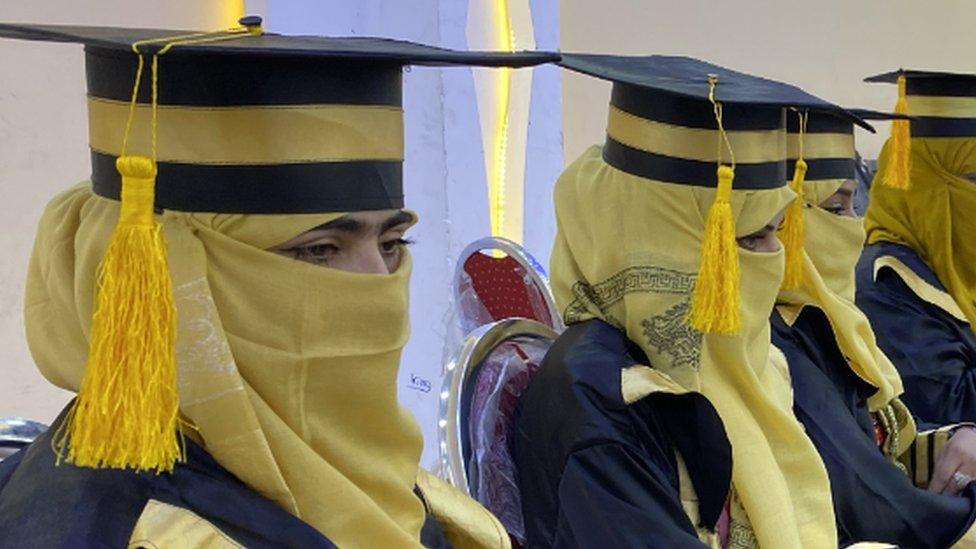BBC show is a 'lifeline' for Afghan girls, UN says
- Published
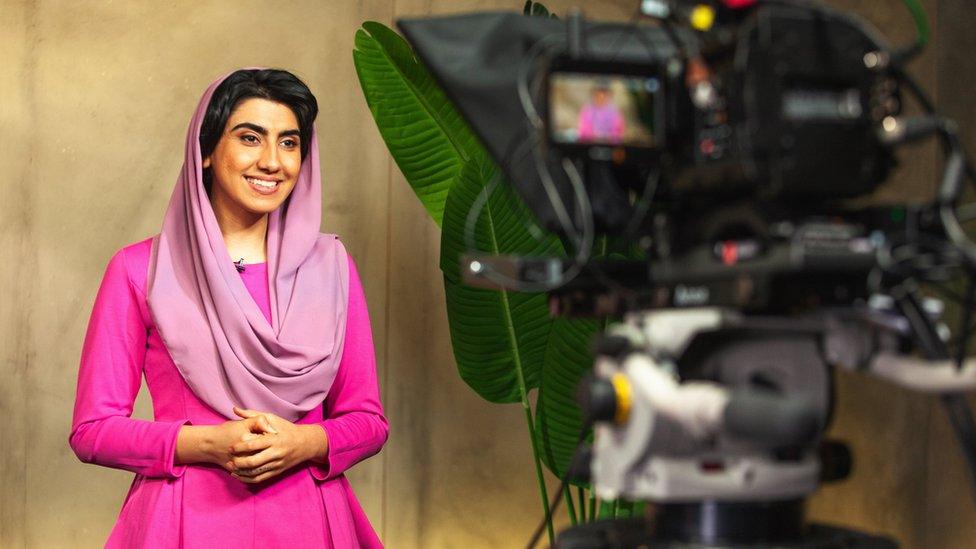
Shazia Haya presents the BBC Dars programme, which means lesson in Afghanistan's official languages of Dari and Pashto
A BBC programme for children barred from schools in Afghanistan has been described as a "learning lifeline" by the United Nations.
The show is being used in secret school lessons, the BBC has learned.
Its name, Dars, means lesson in Afghanistan's official languages of Dari and Pashto.
The ruling Taliban prohibits girls from receiving secondary or higher education.
On the day she was told she could no longer come to work at school, Afsana, who is a teacher, lost her purpose in life.
The 28-year-old worked at a secondary school for girls in eastern Afghanistan. Now, like some other former teachers in the country, she has set up a secret school.
Twenty-five students, all girls, between the ages of 12 and 18, gather in her basement. The only tools she has are a whiteboard, a phone and the BBC Dars programme.
With no signal in her makeshift classroom, Afsana downloads short videos of the show to play to the students, who then write her a summary of what they have seen. "My students watch with interest and passion," she says. "Their hopes have been raised and they are still dreaming for the future."
The show, which has just launched its second series on TV, online and radio, is hosted by BBC female journalists who themselves fled Kabul more than two years ago, after the Taliban's return to power.
Any form of learning "provides safety hope and opportunity", says Yasmine Sherif, the executive director of Education Cannot Wait, the United Nations global fund for the education of children in crisis.
"Community-based education or remote learning, such as the BBC's Dars programme, offers them the learning lifeline which they so desperately need," she adds.
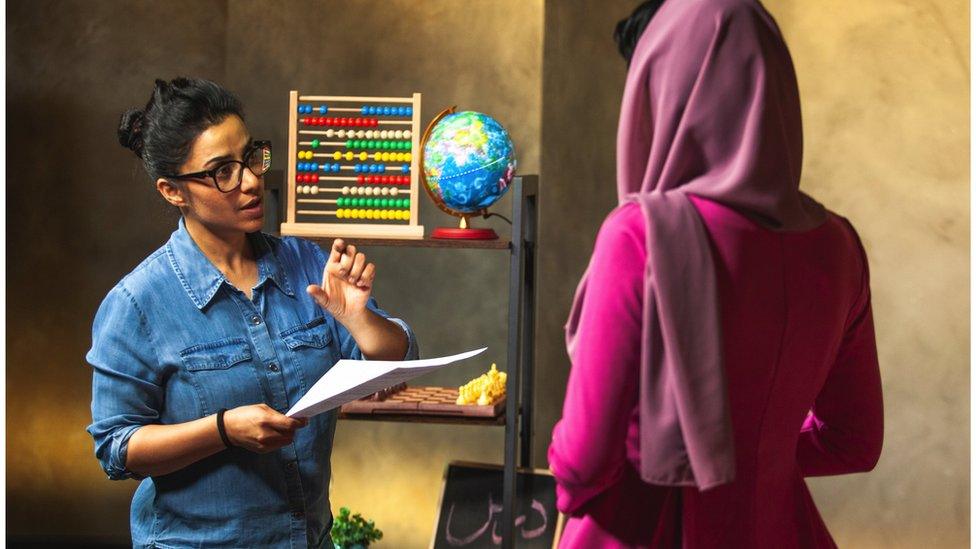
Mariam Aman is a producer on the show, adapting existing BBC teaching content, covering maths, history, science and ICT
I am from Afghanistan too and work as a producer on the show, which covers subjects such as English, maths, history and science.
While it keeps students in touch with their education, it is not a replacement for school. Until girls and women are allowed back into the classroom their future in Afghanistan is bleak.
The Taliban government says the bar on girls' education in Afghanistan is temporary and once a curriculum in line with Islamic and Afghan traditions is put in place, girls will be able to return to the classroom. However, this has not satisfied many Afghan observers who say hopes of schools being reopened have been dented by the increasing restrictions imposed on women.
"This country has become a graveyard for our hopes," says 21-year-old Razia from Nangarhar province in eastern Afghanistan. Her life completely changed when she was stopped from going to classes in the final year of her journalism degree. "Afghanistan is a prison we are trying to escape," she explains.
Razia makes her younger siblings watch the programme, including her 12-year-old sister who dreams of becoming a doctor. But life is tough in Afghanistan for young women. "We cry every day. We have totally lost our self-confidence. I even feel resentful towards every man in the country," Razia admits.
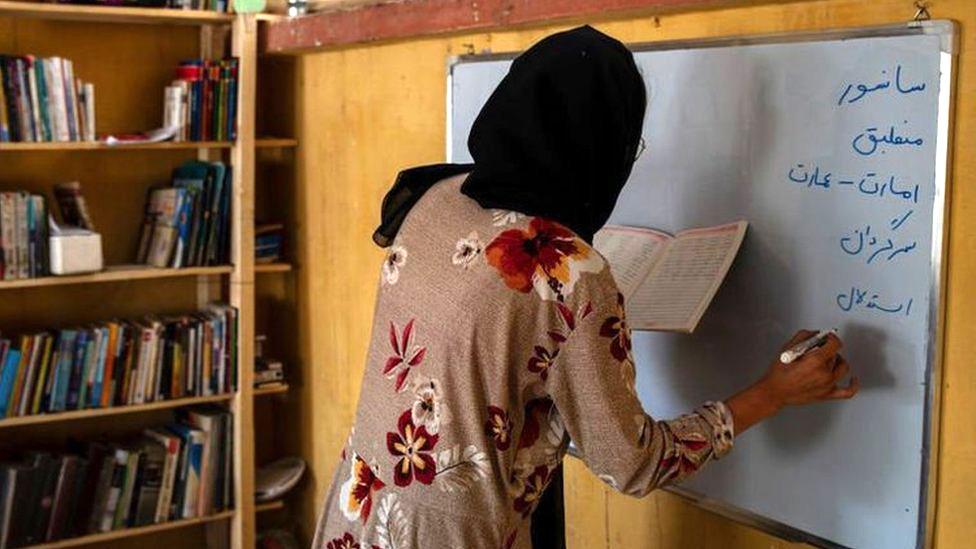
A teacher writes on a whiteboard during class at a secret school in Afghanistan
In the late 1990s, during the Taliban's previous rule, an entire generation of Afghan girls faced the same devastating restrictions on education.
A fortunate few, including myself, went elsewhere. I now work in the UK and have lived here for more than 20 years.
However, for the majority of girls in Afghanistan, like my cousins, marrying young became the norm. Today they are having to relive their trauma as their teenage daughters face the same fate.

Where to find Dars
BBC News Afghanistan TV and radio satellite channel
BBC News Pashto and BBC News Dari Facebook and YouTube channels
BBC Persian TV
FM, short-wave and medium-wave radio

Another person who watches Dars every week is 16-year-old Amina, who hasn't set foot in a classroom for more than two years. She misses the routine that school provided and without classes to attend she spends her days with her mother learning to cook traditional Afghan dishes.
A friend recommended the BBC programme Dars to her and she says watching it makes her feel she is regaining a small amount of control over her life. "There hadn't been a proper educational programme to learn something new, so when Dars started, it gave me hope," she reveals.
Amina tells us via a WhatsApp voice message that she used to feel as though the world had forgotten about girls in Afghanistan. "I was wondering if there are people out there that care about me," she says. "I hope one day I will be able to go back to school, but until then Dars can help me to feel connected with my classroom."
Some names in this story have been changed for security reasons.
Related topics
- Published1 April 2023
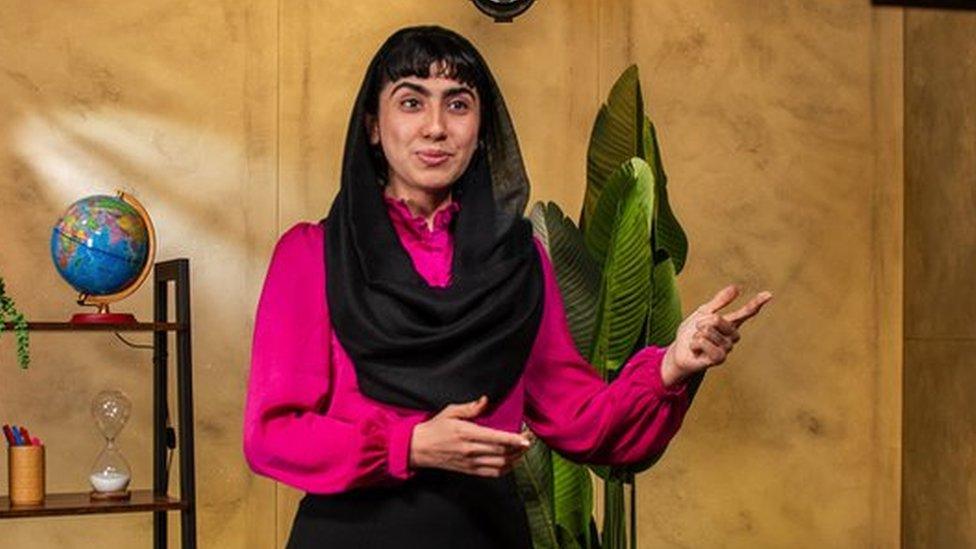
- Published8 December 2021
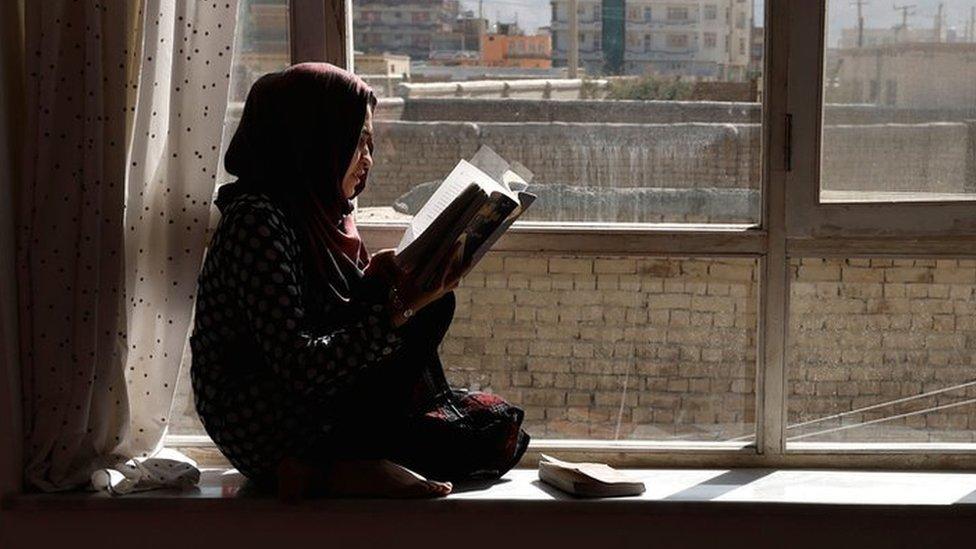
- Published21 December 2022
